Jus soli
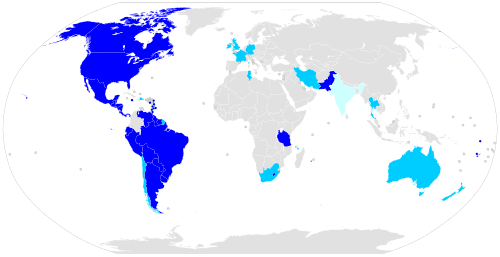
Jus soli (English: /dʒʌs
Jus soli was part of the English common law, in contrast to jus sanguinis, which derives from the Roman law that influenced the civil-law systems of continental Europe.[3][4] Where it exists universally, it is often not quite unconditional. For instance, some countries deny citizenship to children of foreign diplomats.[5] As an unconditional (or near-unconditional) basis for citizenship, jus soli is the predominant rule in the Americas, but it is rare elsewhere.[6][7] Since the Twenty-seventh Amendment of the Constitution of Ireland was enacted in 2004, no European country grants citizenship based on unconditional or near-unconditional jus soli.[8][9]
Almost all states in Europe, Asia, Africa and Oceania grant citizenship at birth based upon the principle of jus sanguinis (right of blood), in which citizenship is inherited through parents not by birthplace, or a restricted version of jus soli in which citizenship by birthplace is automatic only for the children of certain immigrants. Countries that have acceded to the 1961 Convention on the Reduction of Statelessness will grant nationality to otherwise stateless persons who were born on their territory, or on a ship or plane flagged by that country.
Jus soli is associated with permissive citizenship rights. Most countries with unconditional or near-unconditional jus soli laws tend to give birthright citizenship (and nationality) based on jus sanguinis rules as well, although these stipulations tend to be more restrictive than in countries that use jus sanguinis as the primary basis for nationality.
History
An early form of jus soli dates from Cleisthenes' reforms of ancient Athenian law in the 6th century BC. It developed further in the Roman world, where citizenship was extended to all free inhabitants of the Roman Empire by the Edict of Caracalla in AD 212.
Much later, the independence of the English colonies in America and the French Revolution in the late 18th century laid the foundations for jus soli. With the social and economic development of the 19th and 20th centuries and the massive migrations to the Americas and Western Europe, jus soli was established in a greater and greater number of countries.
At the turn of the 19th century, nation-states commonly divided themselves between those granting nationality on the grounds of jus soli (France, for example) and those granting it on the grounds of jus sanguinis (for example, Germany before 1990). However, since 2007 the European migrant crisis has focused attention on these two conflicting sources of nationality rights.
National laws
Lex soli is a law used in practice to regulate who and under what circumstances an individual can assert the right of jus soli. Most states provide a specific lex soli—in application of the respective jus soli—and it is the most common means of acquiring nationality. However, a frequent exception to lex soli is imposed when a child is born to a parent in the diplomatic or consular service of another state on a mission to the state in question.[10]
Unrestricted jus soli
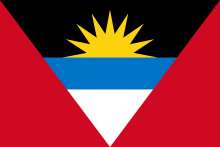

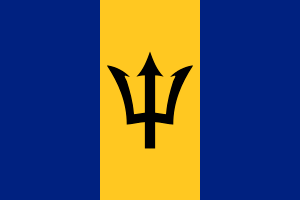
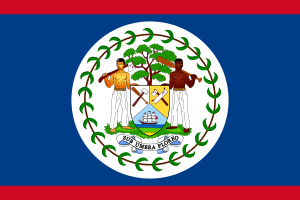
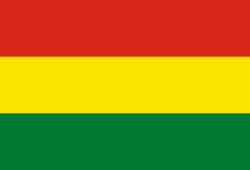


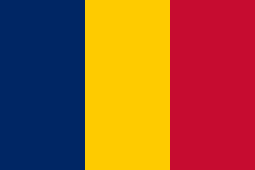

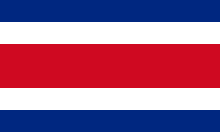

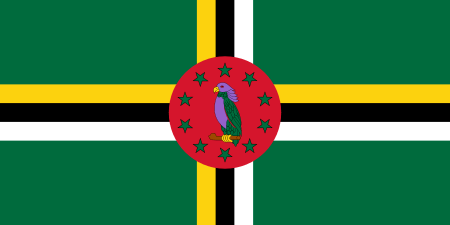

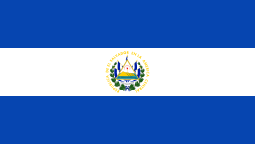
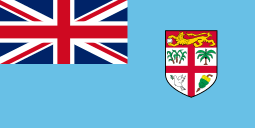
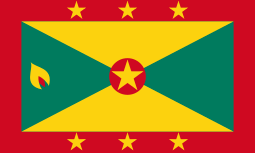
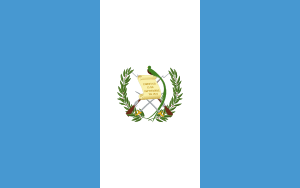
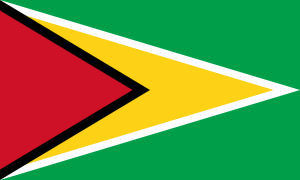
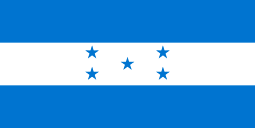
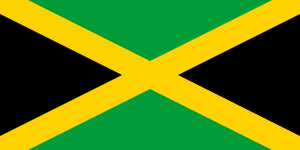
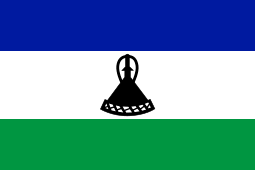




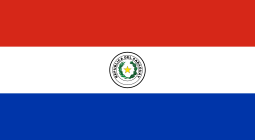

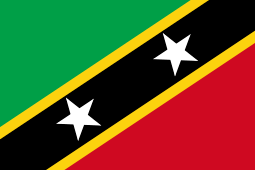

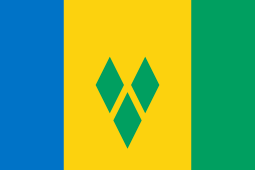
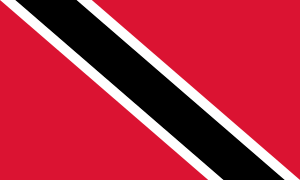
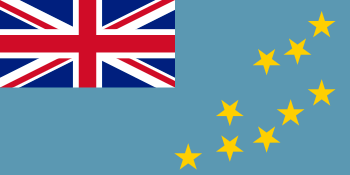



Restricted jus soli
There is a trend in some countries toward restricting lex soli by requiring that at least one of the child's parents be a citizen, national or legal permanent resident of the state in question at time of the child's birth.[37] Modification of jus soli has been criticized as contributing to economic inequality, the perpetuation of unfree labour from a helot underclass[37] and statelessness. Jus soli has been restricted in the following countries:


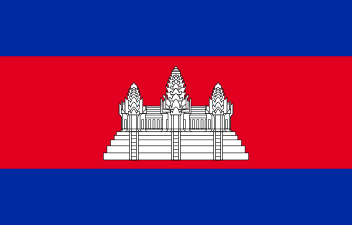












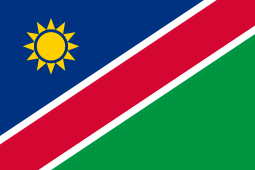








Abolition of jus soli
Some countries that formerly observed jus soli have moved to abolish it entirely, conferring citizenship on children born in the country only if one of the parents is a citizen of that country.


See also
References
- ↑ jus soli, definition from merriam-webster.com.
- ↑ Vincent, Andrew (2002). Nationalism and Particularity. Cambridge; New York: Cambridge University Press.
- ↑ Ayelet Shachar, The Birthright Lottery: Citizenship and Global Inequality (Harvard University Press, 2009), p. 120.
- ↑ Rey Koslowski, Migrants and Citizens: Demographic Change in the European State System (Cornell University Press, 2000), p. 77.
- ↑ "Birth in Canada of children of foreign representatives". Global Affairs Canada. 3 June 2018.
- ↑ Rotunda, Ronald D. (16 September 2010). "Birthright citizenship benefits the country". Chicago Tribune.
- ↑ Smith, Morgan (16 August 2010). "Repeal Birthright Citizenship – and Then What?". Texas Tribune.
- ↑ Gilbertson, Greta (1 January 2006). "Citizenship in a Globalized World". Migration Policy Institute.
- ↑ Vink, M.; de Groot, G. R. (2010). Birthright Citizenship: Trends and Regulations in Europe. Comparative Report RSCAS/EUDO-CIT-Comp. 2010/8 (PDF). Florence: EUDO Citizenship Observatory. p. 35.
- ↑ Guimezanes, Nicole. "What Laws for Naturalisation?" The OECD Observer. Paris: June/July 1994., Iss. 188; pg. 24, 3 pgs (Cites legislation for Australia, Austria, Belgium, Canada, Denmark, Finland, France, Ireland, Italy, Japan, Luxembourg, Netherlands, New Zealand, Norway, Portugal, Spain, Sweden, Switzerland, Turkey, United Kingdom and the United States)
- 1 2 3 4 5 6 7 8 9 10 11 12 13 14 15 16 17 18 19 20 21 22 23 24 25 26 27 28 29 Katherine Culliton-Gonzalez, Born in the Americas: Birthright Citizenship and Human Rights, Harvard Human Rights Journal (2012), Vol. 25, pp. 135-36.
- ↑ Constitution of Antigua and Barbuda: CHAPTER VIII CITIZENSHIP | PERSONS WHO AUTOMATICALLY BECOME CITIZENS AFTER COMMENCEMENT OF THIS CONSTITUTION | Section 113 The following persons shall become citizens at the date of their birth on or after 1st November 1981– a. every person born in Antigua and Barbuda: Provided that a person shall not become a citizen by virtue of this paragraph if at the time of his birth- i. neither of his parents is a citizen and either of them possess such immunity from suit and legal process as is accorded to the envoy of a foreign sovereign power accredited to Antigua and Barbuda; or ii. either of his parents is a citizen of a country with which Her Majesty is at war and the birth occurs in a place then under occupation by that country.
- ↑ Constitution of Barbados: CHAPTER II CITIZENSHIP Persons born in Barbados after 29 November 1966: Section 4: Every person born in Barbados after 29th November 1966 shall become a citizen of Barbados at the date of his birth: Provided that a person shall not become a citizen of Barbados by virtue of this section if at the time of his birth – a. his father possesses such immunity from suit and legal process as is accorded to an envoy of a foreign sovereign state accredited to Her Majesty in right of Her Government in Barbados and neither of his parents is a citizen of Barbados; or b. his father is an enemy alien and the birth occurs in a place then under occupation by the enemy.
- ↑ "It is the Department's view that the legislation should be amended to stipulate that (as in the United Kingdom and the Bahamas) children born in Barbados will not be deemed to be citizens of Barbados, unless at least one parent at the time of the birth, has permanent status in Barbados. In addition persons born in Barbados should not be deemed to be citizens where the parents are residing illegally in Barbados" (PDF). Foreign.gov.bb. Retrieved 23 February 2017.
- ↑ Constitution of Belize: PART III Citizenship, section 24 "24. Every person born in Belize on or after Independence Day shall become a citizen of Belize at the date of his birth: Provided that a person shall not become a citizen of Belize by virtue of this section if at the time of his birth- his father or mother is a citizen of a country with which Belize is at war and the birth occurs in a place then under occupation by that country"
- ↑ Article 12a of the Federal Constitution (translated) says that Brazilians include, "a) those born in the Federative Republic of Brazil, even if of foreign parents, provided they are not in the service of your country". "Neoconstitucionalismo – Análise histórica". JusBrasil.
a) os nascidos na República Federativa do Brasil, ainda que de pais estrangeiros, desde que estes não estejam a serviço de seu paí
- ↑ "Legislationline". Legislationline.org. Retrieved 23 February 2017.
- ↑ CODE DE LA NATIONALITE - ORDONNANCE No. 33/PG.-INT. - DU 14 AOUT 1962 - PORTANT CODE DE LA NATIONALITE TCHADIENNE « de la nationalité d'origine - CHAPITRE II - Art. 12 - Sont Tchadiens: Les enfants nés au Tchad de parents étrangers ; toutefois, ils peuvent, si les deux ascendants ont la même nationalité, opter pour cette nationalité ; ce droit d'option ne peut s'exercer que si la législation du pays dont les ascendants sont nationaux le permet. » (Translation: "Chadian citizens include: Children born in Chad of foreign parents; however if both parents have the same nationality, they (the children) can opt for the parents' nationality, if the legislation of their parents' country permits it.")
- ↑ Manby, B. (2012). Citizenship Law in Africa: A Comparative Study. Open Society Foundations. p. 36. ISBN 978-1-936133-29-1. Retrieved 13 February 2018.
- ↑ CODE DE LA NATIONALITE - ORDONNANCE No. 33/PG.-INT. - DU 14 AOUT 1962 - PORTANT CODE DE LA NATIONALITE TCHADIENNE « de la nationalité d'origine - CHAPITRE II - Art. 13 - L'option prévue aux articles 11 et 12 s'exerce à l'âge de dix-huit ans révolus. Toutefois, lorsque cette option est motivée par une reconnaissance postérieure à la majorité, l'intéressé doit l'exercer dans le délai d'un an qui suit la reconnaissance. » (Translation: "The options presented in articles 11 and 12 deploy themselves at 18 years of age. However, if an individual recognizes their ability to follow these options after majority has been reached, a delay of 1 year must take place from the recognition before the options can be pursued.")
- ↑ Constitution of the Republic of Chile, chap. II, art. 10, par. 1 (Spanish text; English version without recent changes) Article 10.- Chileans are: 1.- Persons born in the territory of Chile, with the exception of those children of foreigners who are in Chile serving their government, as well as those children of transient foreigners. However, all may opt for the Chilean nationality.
- ↑ The Constitution of Costa Rica: Title II ARTICLE 13: The following are Costa Ricans by birth: ...2. A child born abroad to a born Costa Rican father or mother, who is registered as such in the Civil Register by the will of the Costa Rican parent during its minority, or by his own will up to the age of twenty-five..."
- ↑ The Constitution of the Commonwealth of Dominica Chapter VII Citizenship 98 "Every person born in Dominica after the commencement of this Constitution shall become a citizen of Dominica at the date of his birth: Provided that a person shall not become a citizen of Dominica by virtue of this section if at the time of his birth- a) neither of his parents is a citizen of Dominica and his father possesses such immunity from suit and legal process as is accorded to the enjoyment of a foreign sovereign power accredited to Dominica; or b) his father is a citizen of a country with which Dominica is at war and the birth occurs in a place then under occupation by that country."
- ↑ Fiji Constitution: chapter 3, Section 10 Citizenship by birth: Every child born in Fiji on or after the date of commencement of this Constitution becomes a citizen at the date of birth unless, at the date of birth: (a) a parent of the child has the diplomatic immunity accorded to envoys of foreign sovereign powers accredited to Fiji; and (b) neither parent is a citizen.
- ↑ Constitution of Jamaica Chapter II Citizenship 3B.-(1): Every person born in Jamaica shall become a citizen of Jamaica – a. on the sixth day of August 1962, in the case of a person born before that date; b. on the date of his birth, in the case of a person born on or after the sixth day of August 1962.
- ↑ The Constitution of Lesotho, chap. IV, sec. 38 | CHAPTER IV CITIZENSHIP: 38. Persons born in Lesotho after the coming into operation of the Constitution
- ↑ CONSTITUCIÓN POLÍTICA DE LOS ESTADOS UNIDOS MEXICANOS – Constitución publicada en el Diario Oficial de la federación el 5 de febrero de 1917 – TEXTO VIGENTE – Última reforma publicada DOF 07-07-2014 Capítulo II De los Mexicanos – Artículo 30. La nacionalidad mexicana se adquiere por nacimiento o por naturalización A) Son mexicanos por nacimiento: I. Los que nazcan en territorio de la República, sea cual fuere la nacionalidad de sus padres. (Translation: "Mexicans by birth are: I. Those born in the territory of the Republic, regardless of the nationality of their parents")
- ↑ Faryal Nazir, Section 3.1.1 in Report on Citizenship Law: Pakistan, Robert Schuman Centre for Advanced Studies, European University Institute (December 2016): "Jus soli or citizenship by birth is recognized in the Act (Section 3 and 4). At the time of commencement of the Act, a person born in Pakistan could claim nationality if he was residing in Pakistan. Every person born in Pakistan after the commencement of this Act is deemed to be citizen of Pakistan by birth. The law denies citizenship to a person born in the country, if his father enjoys diplomatic immunity in Pakistan or if his father was an enemy or alien in Pakistan. Therefore, the children born to aliens in Pakistan are not accorded the privilege of citizenship."
- ↑ UN Refugee Agency: Pakistan Citizenship Act, 1951 Section 4. Citizenship by birth: Every person born in Pakistan after the commencement of this Act shall be a citizen of Pakistan by birth.
- ↑ CONSTITUCIÓN POLÍTICA DE LA REPÚBLICA DE PANAMÁ DE 1972, REFORMADA POR LOS ACTOS REFORMATORIOS DE 1978, Y POR EL ACTO CONSTITUCIONAL DE 1983 – TITULO II: NACIONALIDAD Y EXTRANJERIA: ARTICULO 8. La nacionalidad panameña se adquiere por el nacimiento, por la naturalización o por disposición constitucional – ARTICULO 9: "Son Panameños por nacimientos: 1) Los nacidos en el territorio nacional | (translation) Panamanians by Birth: 1) Those born in the national territory"
- ↑ s:Constitution of the Republic of Trinidad and Tobago/Chapter 2
- ↑ Constitution of Tuvalu Part III Section 45. Citizenship by birth: (1) Subject to subsections (3) and (4), a person born in Tuvalu on or after the date on which this Constitution took effect is a citizen of Tuvalu by birth." Note: section 3 pertains to children of foreign diplomats and section 4 pertains to children of belligerants at times of war
- ↑ "America's Founding Documents | National Archives". Archives.gov. 12 October 2016. Retrieved 23 February 2017.
- ↑ United States v. Wong Kim Ark 169 U.S. 649 (1898); Ryan, John M. (27 August 2009). "Letters: U.S. citizenship". Silver City Sun-News. Retrieved 6 September 2009.
- ↑ Uruguay: Whether a person who obtained Uruguan citizenship because her father was a citizen of Uruguay, can bring a dependent child to Uruguay; the status of the child in Uruguay, Immigration and Refugee Board of Canada (9 September 2010): "With respect to natural citizens, Uruguay's Constitution states: '[a]ll men and women born at any place within the territory of the Republic are natural citizens. Children of Uruguayan fathers or mothers are also natural citizens, wherever they may have been born, provided that they take up residence in the country and register themselves in the Civil Register.' (Uruguay 1996, Art. 74)"
- ↑ Constitution of Venezuela (English translation) Chapter II, Nationality and Citizenship, Section One: Nationality, Article 32: Are Venezuelans* by birth: (1) Any person who was born within the territory of the Republic.
- 1 2 3 4 5 6 Mancini, JoAnne; Finlay, Graham (September 2008). "'Citizenship Matters': Lessons from the Irish citizenship referendum". American Quarterly. American Quarterly. 60 (3): 575–599. doi:10.1353/aq.0.0034.
- ↑ "Part one of Bahraini citizenship" (PDF). Ref world. Retrieved 12 March 2015.
- ↑ title Law on Nationality of 20 August 1996 (unofficial translation)published by the United Nations High Commission for Refugees CHAPTER II KHMER NATIONALITY/CITIZENSHIP BY BIRTH ...shall obtain Khmer nationality/citizenship, by having been born in the Kingdom of Cambodia: a. any child who is born from a foreign mother and father (parents) who were born and living legally in the Kingdom of Cambodia.
- ↑ "The Constitution and the Right to Nationality in the Dominican Republic – Human Rights Brief Human Rights Brief". Hrbrief.org. 29 October 2010. Retrieved 23 February 2017.
- ↑ "A Crisis of Nationality: Dominicans of Haitian Descent" (PDF). Soros.org. October 2013. Retrieved 23 February 2017.
- ↑ Ezequiel Abiu Lopez; Danica Coto (27 September 2013). "Dominican Republic To End Citizenship Of Those Whose Parents Entered Illegally". Huffington Post. Archived from the original on 14 November 2013.
- ↑ "A storm in Hispaniola". The Economist. 7 December 2013.
- ↑ "Inventario extranjeros Registro Civil RD 1929 – 2007 by Junta Central Electoral (JCE)". Issuu.com. 7 November 2013. Retrieved 23 February 2017.
- ↑ "immigrationplan". Domrep.org. Retrieved 23 February 2017.
- ↑
- ↑ e.g., child born in Greece to alien parents after coming of age (Nationality law of 1835, Article 2), child born in Greece of unknown father and mother (Greek Civil Law of 1856, Article 14, Paragraph c), child born in Greece and not automatically acquiring another nationality (Greek Nationality Code of 1955, Article 1, Paragraph d)
- ↑ "Greek Nationality Code (Law 3284 of 2004)". Et.gr. Retrieved 23 February 2017.
- ↑ "Article 1 A child of foreigner parents born in Greece acquires the right to Greek nationality under the following preconditions: a) He/she has enrolled in the first grade of elementary school and is still attending Greek school at the time the application-declaration of paragraph 2 is being lodged. b) One of their parents has been living legally and continuously for at least five (5) years in the country before the child was born. In case the child was born before this five year period had been completed, then the necessary period of legal and continuous residence of the parents is extended to ten (10) years." See, Law 4332 of 2015
- ↑ "Athens Macedonian News Agency: News in English, 16-07-04". Hri.org. 4 July 2016. Retrieved 23 February 2017.
- ↑ Chen, Albert H. Y. (2011). "The Rule of Law under 'One Country, Two Systems': The Case of Hong Kong 1997–2010" (PDF). National Taiwan University Law Review. 6 (1): 269–299. Retrieved 4 October 2011.
- ↑ "Babies Born in Hong Kong to Mainland Women" (PDF). Hong Kong Monthly Digest of Statistics. September 2011. Archived from the original (PDF) on 25 November 2011. Retrieved 4 October 2011.
- ↑ "內地來港產子數目5年急增25倍 香港擬收緊綜援". People's Daily. 10 March 2008. Archived from the original on 18 January 2012. Retrieved 5 October 2011.
- ↑ "Basic Law Full Text – chapter (3)". Basiclaw.gov.hk. Retrieved 23 February 2017.
- ↑ "Civil Code of Iran (last amended 1985)". United Nations High Commission for Refugees. Retrieved 23 June 2012.
- ↑ "Obtaining Luxembourgish nationality by simple operation of law - Citoyens // Luxembourg". guichet.public.lu. Retrieved 2018-06-11.
- ↑ "الاستقبال-الأجانب في المغرب-الأجانب المقيمون-اكتساب الجنسية المغربية". Service-public.ma. Retrieved 23 February 2017.
- ↑ "1000 kids face deportation or being orphaned for breaching New Zealand visa rules". Visabureau.com. 7 October 2011. Retrieved 23 February 2017.
- ↑ "Portuguese Nationality Act : Law 37/81, of 3 October : Consolidated version, as amended by Organic Law 2/2006, of 17 April" (PDF). Eudo-citizenship.eu. Retrieved 23 February 2017.
- ↑ "The Sudanese Nationality Act 1994 and Sudanese Nationality Act (Amendment) 2011 (English Translation)" (PDF). E-justice.th. Retrieved 23 February 2017.
- ↑
- ↑ "Thailand". Republic of the Philippines: Office of the Solicitor General. Retrieved 22 June 2012.
- ↑ Yang, Bryant (2009). "Life and Death Away from the Golden Land: The Plight of Burmese Migrant Workers in Thailand". Thailand Law Journal. 12 (1). Retrieved 22 June 2012.
- ↑ "Amendments to the Nationality Act 2008". Government Gazette of Thailand. 125. 27 February 2008. Retrieved 22 June 2012.
- ↑ "1 -لمن يمكن إسناد الجنسية التونسية باعتبارها جنسية" (PDF). E-justice.th. Retrieved 23 February 2017.
- ↑ Sadiq, Kamal (2008). Paper Citizens: How Illegal Immigrants Acquire Citizenship in Developing Countries. Oxford University Press. p. 10. ISBN 978-0-19-537122-2.
- ↑ Bauböck, Rainer; Bernhard Perchinig; Wiebke Sievers (2007). Citizenship policies in the new Europe. Amsterdam University Press. p. 247. ISBN 978-90-5356-922-1.